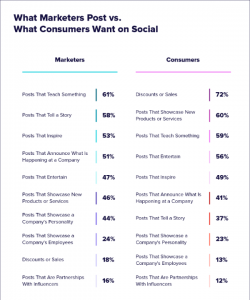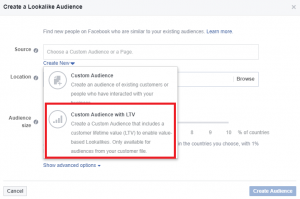Here are 7 tips from our community we think are worth a second look.
Our community of digital marketers are dedicated to sharing tactics to help others elevate their performance so here are a few insights from the past year that were popular with readers.
1. What you cannot measure sometimes matters most
“Marketers should use attribution reports to assess trends and relative impact, absolutely. But it’s a slippery slope to draw big conclusions from absolute numbers,” cautions Joe Hyland of ON24. “For example, comparing the win rate of deals that include one type of touch versus another is reasonable. But concluding that one specific touch-type drove a certain amount of pipeline – solely on its own – is not. Some channels may see less conversion simply because there is more competition on that platform. Or the problem could be your execution rather than the channel itself. An attribution report can’t tell you why a tactic is underperforming, so that’s where marketers come in. It’s on us to be able to analyze and to optimize our efforts, place multiple bets on different channels, and trust that what we cannot measure will pay long-term dividends.” MORE >>
2. Marketing strategy is a fluid process, don’t let it stall
“Customer journey mapping is the manifesto of marketing strategy and operations. Laboring over the details of where your customer eats, shops, apps, visits (digitally or physically), etc. including their interactions with your potential competitors only shapes a solid strategy,” explains marketing and creative operations consultant Sharon Joseph. “But brace yourself, it’s an undertaking and a fluid process. Just as you might find yourself finalizing a strategic approach to connecting with your customers, economical shifts happen and the connections need to adapt. Keeping up with the strategy of connecting with your customers is a strategy onto itself. Strategic stall is real.” MORE >>
3. Ensure your brand story flows across mediums
“Your brand story cannot afford to be medium-centric. It must be medium-agnostic. That is, it should flow smoothly across all mediums, from blog posts to social media interactions to video storytelling,” explains Allen Martinez of Noble Digital. “This flies in the face of the age-old advice to choose a medium and stick with it. True, some mediums may not offer value to you. However, that is not the case for all of them. A good creative strategy takes into account the various platforms that work for your organization, as well as your audience, and then builds across them all at once.” MORE >>
4. Know the best practices on your social media platforms
“Know the terrain of the digital landscape and make sure that you can articulate your message in different ways depending on the platform,” explains Ronald Dod of Visiture. “With Twitter, LinkedIn, Facebook and other social media platform advertising, you’ll need to be especially aware of this. Something that works as a tweet often doesn’t make a good LinkedIn post, and vice versa. If your social media posts aren’t getting enough engagement, consider that they might need to be tailored to the platform better and review some best practices and stay on top of recent updates when writing for different social media. Familiarizing yourself with each platform’s unique standards, such as their character limits and post formatting is important.” MORE >>
5. Here’s why attribution always matters
“If you are tracking results at ANY level, then you are using an attribution model, whether you believe in attribution or not. Therefore, if you’re going to use attribution (and you are), then it should be as accurate as possible,” explains Amy Bishop of Cultivative Marketing. “The goal of attribution is to give better insight into what’s working, what isn’t working and how it all works together. While I’ll be the first to admit that there isn’t a company in the world that has nailed attribution with a 100% degree of confidence, I would also be the first to argue that it’s important to put energy toward making it as accurate as you can.” MORE >>
6. Setting up triggers and variables in Google Tag Manager
“Google Tag Manager saves marketers and developers alike by allowing you to set up tracking codes for analytics and ad platforms through one simple interface,” explains SMX East speaker Tim Jensen of Clix Marketing. “Once you set up tags to fire tracking codes on your site, you can choose a trigger that will cause your tag to work. Triggers can be based on a number of actions such as pageviews, clicks, element visibility, form submissions, time on site, custom events and more. Choose the trigger you want, and then use the fields to specify criteria. For instance, a pageview trigger can fire when a URL is viewed. You can also add multiple conditions, all of which will need to be true before the trigger fires. There are a limited amount of variables that appear in your options by default when setting up triggers in Google Tag Manager. If you want to delve into more precise customization, be sure to enable additional variables in the interface. For instance, you might want to target clicks for buttons that all have the same CSS class. You can check the box next to ‘Click Classes’ and you’ll now see this variable as an option.” MORE >>
7. Email best practices include a template, but that’s not all
“As useful as best practices can be, they’re not supposed to be the final word,” explains Ryan Phelan of Origin Email. “Instead, they’re something you use to launch a program, and then you develop the practice that works best for your brand, company and customers. Take the win-back program. The best practice that evolved over several years of trial, error and testing is sending a three-email program spaced at different intervals with escalating offers, all geared to bring inactive customers back. That’s the ideal. But your brand might need only one or two emails. A B2B company, especially one with long consideration cycles, might need five or more. The best practice is your template. It gives you a place to start planning. Then, you adapt that template to your needs.” MORE >>
Pro Tip is a special feature for marketers in our community to share a specific tactic others can use to elevate their performance. You can submit your own here.
Marketing Land – Internet Marketing News, Strategies & Tips
(24)
Report Post









